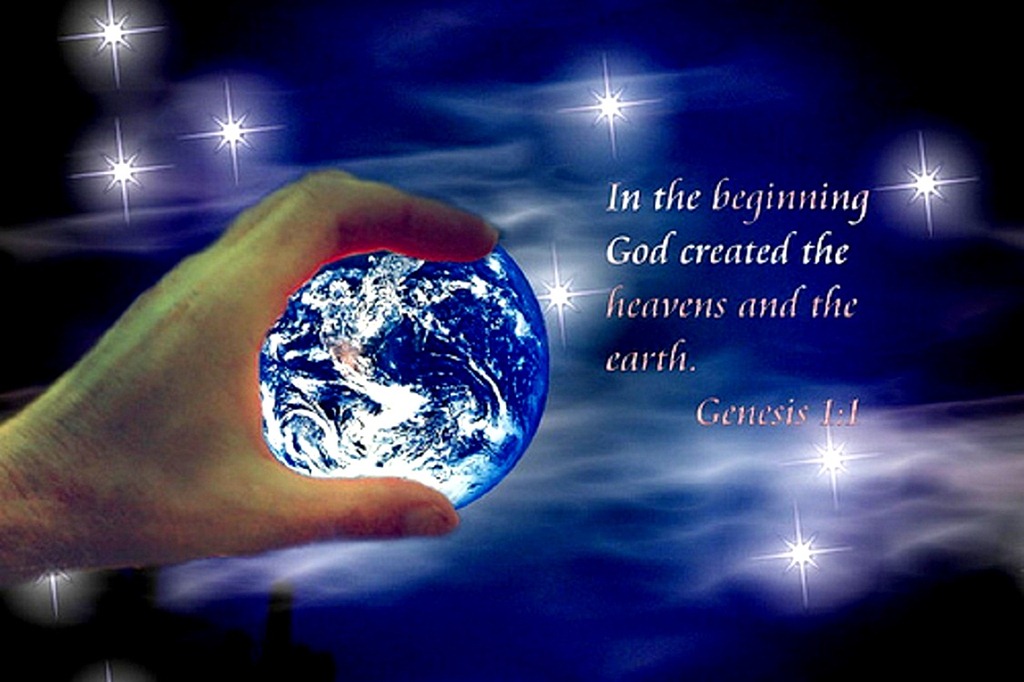Post Author: Bill Pratt
 Ancient Israel was immersed in two dominant cultures, that of the Egyptians and that of the Mesopotamians. The Hebrew accounts of the origins of the universe stand in contrast to these ancient cultures, so it would be interesting to see a summary of what these other cultures believed.
Ancient Israel was immersed in two dominant cultures, that of the Egyptians and that of the Mesopotamians. The Hebrew accounts of the origins of the universe stand in contrast to these ancient cultures, so it would be interesting to see a summary of what these other cultures believed.
Jim Adams provides a helpful summary of their views on the cosmogony (origins of universe) and theogony (origins of gods) in the New Mormon Challenge.
First, the people of both Egypt and Mesopotamia were polytheistic (accepted many gods). Although at times each religion acknowledged a superior or high god such as Marduk or Amun-Rê, that did not constitute the dismissal of other gods from their respective pantheons.
Second, each cosmogony contains a theogony that presents the origin and genealogy of the gods with the primary purpose of specifying the hierarchical role of each god in their respective pantheon. In fact, any god in the pantheon could be proclaimed supreme over the others when that god was addressed or called upon for help.
Third, the gods are constituent with the matter of the universe, and in fact the gods are typically depicted as a personification of a particular natural phenomenon (e.g., sun, sky, water). Hence, the gods do not transcend the material world and are limited to the power of the phenomena they personify.
Fourth, the gods are engendered beings and are often depicted as creating other gods by begetting them.
Fifth, fundamental to each of the cosmogonies is a preexisting primordial realm represented by the primeval waters of chaos wherefrom the gods, humanity, and nature find their ultimate origin.
Sixth, this primordial realm transcends the gods. It limits their power, and its fundamental laws of operation are laws to which the gods are subject.
Adams cites the Jewish biblical scholar Yehezkel Kaufmann who believes that the fifth and sixth features above are the fundamental marks of ancient paganism. Kaufmann describes it as
the idea that there exists a realm of being prior to the gods and above them, upon which the gods depend, and whose decrees they must obey. Deity belongs to, and is derived from, a primordial realm. This realm is conceived of variously—as darkness, water, spirit, earth, sky, and so forth—but always as the womb in which the seeds of all being are contained.
Alternatively, this idea appears as a belief in a primordial realm beside the gods, as independent and primary as the gods themselves. Not being subject to the gods, it necessarily limits them. The first conception, however, is the fundamental one. This is to say that in the pagan view, the gods are not the source of all that is, nor do they transcend the universe. They are, rather, part of a realm precedent to and independent of them. They are rooted in this realm, are bound by its nature, are subservient to its laws.
To be sure, paganism has personal gods who create and govern the world of men. But a divine will, sovereign and absolute, which governs all and is the cause of all being—such a conception is unknown. There are heads of pantheons, there are creators and maintainers of the cosmos; but transcending them is the primordial realm, with its pre-existent, autonomous forces.
It is against this pagan background that the Hebrews presented quite a different version of cosmogony and theogony. The Hebrew God had always existed, and was responsible for creating everything that exists in the universe. Therefore, the Hebrew God was not in any way limited by a pre-existing realm.
 In Christian theology, God created everything that exists out of nothing (ex nihilo), simply by speaking the universe into existence. When we turn to Mormon theology, we find a very different concept of creation. Mormons deny that God created the universe ex nihilo. What do they believe? According to the editors of
In Christian theology, God created everything that exists out of nothing (ex nihilo), simply by speaking the universe into existence. When we turn to Mormon theology, we find a very different concept of creation. Mormons deny that God created the universe ex nihilo. What do they believe? According to the editors of  Creation ex nihilo is the Christian doctrine that God created the universe and everything in it out of nothing. He spoke all that exists, besides himself, into existence. Why does this doctrine matter?
Creation ex nihilo is the Christian doctrine that God created the universe and everything in it out of nothing. He spoke all that exists, besides himself, into existence. Why does this doctrine matter? There is much debate among Christians about whether the universe was created in six literal days about 10,000 years ago, or whether the universe came into existence about 13.5 billion years ago, and the earth about 4.5 billion years ago, through the creative acts of God. Who is right?
There is much debate among Christians about whether the universe was created in six literal days about 10,000 years ago, or whether the universe came into existence about 13.5 billion years ago, and the earth about 4.5 billion years ago, through the creative acts of God. Who is right? Trick question! There isn’t one, despite what some people will tell you. You see, the issue of exactly how God brought forth life on earth is just not something that is part of the
Trick question! There isn’t one, despite what some people will tell you. You see, the issue of exactly how God brought forth life on earth is just not something that is part of the